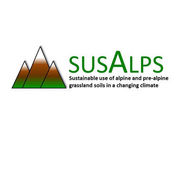Stable plant community biomass production despite species richness collapse under simulated extreme climate in the European Alps (2023)
Niu Y., Schuchardt M., von Heßberg A., Jentsch A.
Science of The Total Environment, 864 (), 161166
doi:10.1016/j.scitotenv.2022.161166
Abstract
Direct observation of biodiversity loss in response to abrupt climate change can resolve fundamental questions about temporal community dynamics and clarify the controversial debate of biodiversity loss impacts on ecosystem functioning. We tracked local plant species loss and the corresponding change of aboveground biomass of native and non-native species by actively pushing mountain grassland ecosystems beyond their ecological thresholds in a five-year, multisite translocation experiment across the European Alps. Our results show that species loss (ranging from a 73 % to 94 % reduction in species richness) caused by simulated climate extremes (strong warming interacting with drought) did not decrease community biomass. Even without non-native species colonization, the community biomass of native species remained stable during native species richness collapse. Switching our research focus from local extinction in the face of climate change towards the beneficial impacts of persisting native species (in addition to novel plant-plant interactions) might yield insights on transformative opportunities for boosting climate resilience.
